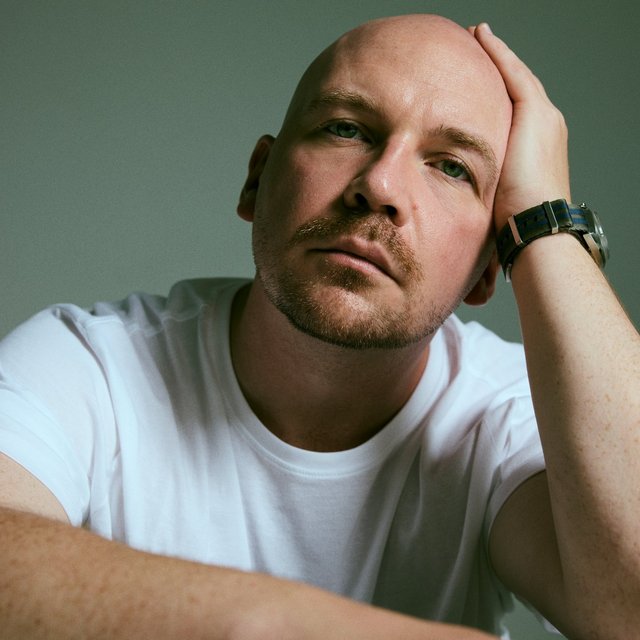Morten Pape: “Writing isn’t hard, it’s just difficult”
Author Morten Pape was particularly moved by an encounter with a group of young Serbians when he visited Belgrade to promote the translation of his second novel GOD'S BEST CHILDREN. Read what made the award-winning Danish author so grateful for literature and the power of language.
By Morten Pape, as told to Karoline Markholst and translated by Hazel
Morten Pape on writing people into life
“Writing long dialogue scenes is demanding and difficult, which is what interests me about doing it. I think it’s fascinating how helpless we humans can come across in our communication with each other.
I rewrite dialogue scenes many times until the dramaturgy, rhythm and movements seem to fit, and they work as well as I can get them to. Sometimes in this process it occurs to me that a line belongs much earlier in the scene; sometimes the key is to reassign a line to another character.
Writing scenes like this is like trying to pry open a lock with tools you don't really know how to use. Then you spend some time with them and soon you’re familiar with all the lock’s components.”
Morten Pape on the inner necessity of writing
“The years leading up to the breakthrough of my debut novel were full of doubt, despair and bitterness. And that’s something to be wary of, both as a person and as a writer. You have to shut everything else out and continue insisting that what you’re exploring with your writing is important – not just for you, but for others too. Do you have something to say, or do you just want to say something?
For me, this inner necessity is essential when I’m working on a novel that can take years to write until it’s good enough to be published. And it shines through and rubs off on readers and publishers. Writing isn’t hard, it’s just difficult.
Morten Pape on challenging Danish self-perception
“I really think the Danish self-perception – that Denmark is the best and most equal society in the world – has influenced my writing and the necessity I’ve felt as I’ve developed my voice as an artist. I've written several novels about the fairytale welfare society I heard so much about when I was little but couldn't always see for myself. Once upon a time it was Hans Christian Andersen’s THE EMPEROR'S NEW CLOTHES exposing the vanity of power, but today I feel like it’s more about putting welfare-happy Danes' self-deception and overevaluation into perspective.”
Morten Pape on being read in translation
“In 2023, I visited Belgrade to promote the Serbian publication of my second novel GOD'S BEST CHILDREN, translated by Sofija Vukovic Petrik. I was worried that the story about a racially-motivated murder on the streets of Amager and the conflict between two groups of teenagers in Denmark would come across as too localised and uninteresting for a wider audience in a Balkan country. But it turned out that the novel's characters and narrative really resonated with the Serbian publishers and readers I met at the events I attended there. It was so enriching to experience our perspectives meet across borders and histories.
I also had the pleasure of visiting the group studying Danish at the University of Belgrade. I was amazed that as Serbs they’d learnt to speak my language and I could just talk to them like I would at home. I met a young man who’d taught himself to read Danish during the pandemic so he could read Kierkegaard in the original language, and a student who'd read all my novels in Danish. The teacher called him my ‘absolute biggest fan’. It was so overwhelming, almost unbelievable. And it made me so grateful for the power of literature and language.”

ABOUT THE AUTHOR:
Morten Pape (1986) made his literary debut in 2015 with the novel THE PLAN, which earned him the Bogforum Debutant Prize. In 2018, he published the sequel GOD’S BEST CHILDREN, awarded Danish Radio’s Novel Award. Translation rights for this work have been sold in Macedonian, Norwegian, Bulgarian, Serbian and Arabic. The trilogy concludes with the novel IN RUINS.
Morten Pape grew up in one of Copenhagen's most notorious neighbourhoods – the disadvantaged ‘Urban Plan’ in Amager, which is where these novels are set. His latest project, a two-volume series beginning with LATCHKEY KID, also draws on autobiographical elements, exploring the lives and legacies of his great-grandfather, grandfather and father.
He currently studies scriptwriting at the alternative Danish film school Supe 16.
He is represented by Politiken Literary Agency